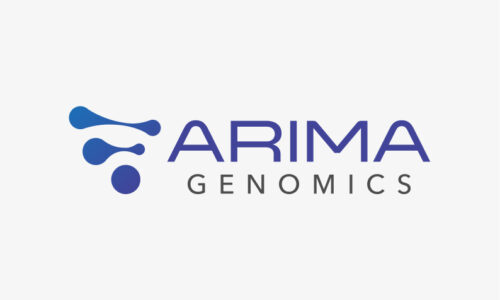January 4, 2023
Share
Carlsbad, Calif. – January 4, 2023—Arima Genomics, Inc., the leader in 3D genomics, today announced that it is launching into the world of single-cell analyses by enabling a team of researchers to map the 3D genome of the human brain, cell by cell. The work is being carried out at multiple institutions including the Salk Institute, and the University of California, Los Angeles, under the umbrella of The BRAIN Initiative Cell Atlas Network (BICAN) and the Brain Research Through Advancing Innovative Neurotechnologies (BRAIN) Initiative.
The research spans several multi-omic technologies, including 3D genomics, DNA methylation and RNA expression, to describe brain cells in unprecedented molecular detail – to classify brain cells into precise subtypes and pinpoint the location of each brain cell. Specifically, they will use the Arima Genomics kits as part of their single-nucleus methyl-3C sequencing (sn-m3C-Seq) workflow, which enables concurrent cell-by-cell interrogation of the methylation state and 3D chromatin organization of the genome.
“Applying 3D genomic technologies at the single-cell level is an incredibly powerful approach. We are just beginning to understand its potential to reveal new biology in the brain,” said Anthony Schmitt, PhD, Senior Vice President of Science at Arima Genomics. “We are thrilled to partner with the multidisciplinary teams to maximize the impact of this critical research into the genetics of human brain function and aging.”
Using this single-cell 3D genomics approach, the team aims to better understand how neurotypical human brains develop, work, and age, helping to establish a baseline against which scientists can compare brains with neurological or psychiatric conditions, including Alzheimer’s disease, autism, depression, and traumatic brain injury. In addition, through differentiation between cell types in the brain, the researchers aim to resolve unique gene regulation programs and cellular mechanisms that determine functional changes in aging and disease that may be vulnerable to therapeutic intervention.
“Single-cell multi-omics including the 3D genomics approach allows us to peek into the inner workings of the human genome, as they can be used to explain the genetic programs that lead to vastly different morphology and function of cell types, tissues, and organs,” said Chongyuan Luo, PhD, Assistant Professor, David Geffen School of Medicine, UCLA. “The single-cell data generated from this project will help us create a comprehensive map of the gene regulatory landscape of human brain development, helping point scientists in the right direction as they aim to understand the genetic causes of neurological and psychiatric conditions, and how to best treat them.”
To learn more about single-cell 3D genomics, watch the recording of our webinar entitled Single-Cell 3D Genomics in Neuroscience and the BRAIN Initiative.
About Arima Genomics
Arima Genomics, Inc. is advancing life sciences research through the power of 3D genomics by providing unparalleled access to the sequence and structure of any genome. Arima Genomics offers the most advanced technologies for preserving the structural organization of the genome to drive discovery in genome biology and human health. To learn more, visit www.arimagenomics.com and connect with us on Twitter, LinkedIn, and YouTube.
Contacts
For media
Gwen Gordon
gwen@gwengordonpr.com
For general inquiries
Pamela Bentley Mills, PhD
pamela@arimagenomics.com



